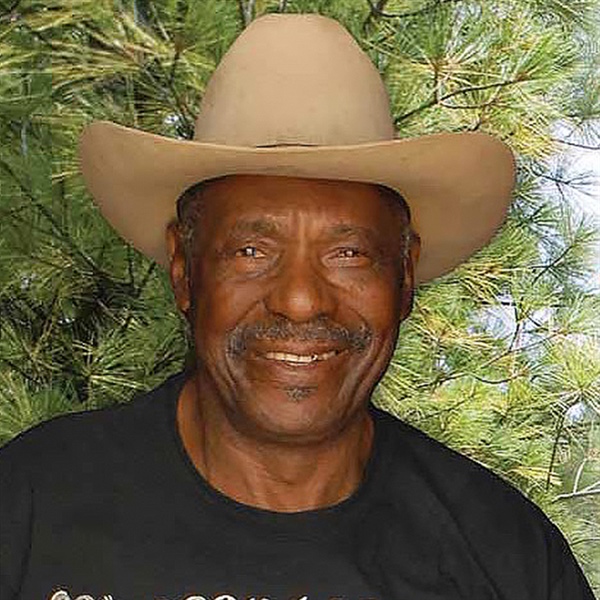By Brad Levy – Past Magazine Committee Volunteer
Heroes are not born into greatness; they are not heroes because they come from wealth or power. Heroes are molded from experience, chiseled from hardship, transformed by adversity, admired for their achievements, and endowed with great strength and abilities. Some heroes might have fame cast upon them, while other heroes walk silently among us. One such hero who deserved the fame but was silenced by the attitudes of his time is Myrtis Dightman Sr., a former professional rodeo cowboy who left an indelible mark on the rodeo world. Dightman was a champion bull rider who began his bull riding career in the late 1950s and continued through the early ‘80s. As a black man, he was bestowed the title of, “The Jackie Robinson of Professional Rodeo,” a title he wears with honor, but that he feels came at the expense of his winning the world championship bull riding title.
Dightman grew up on a ranch in Crockett, Texas, the son of Ada Lee and O.D. Dightman, a ranch hand. Making a living in those times was not easy, nor was maintaining a stable family in light of his father’s untimely death, when Dightman was only 15 years old.
“I was blessed with a strong, devoted mother who kept the family going and always made us toe the line,” he said.
Together with his brother, they took on the role of their father on the ranch after his death. “I credit my mother and her faith in God with providing me the strong base necessary to have chosen a road few men have traveled,” said Dightman.
Coming from a ranching background, Dightman was introduced to cowboys and rodeos at an early age. It always struck him as strange that there were so few black cowboys competing in rodeos. He said that it was the main reason that he jumped into the rodeo arena. At 19 years old, Dightman worked his first rodeo as a bullfighter. A few years later, he started competing as a bull rider. His chosen path qualified him to compete more than five times in the world championship bull riding competition. Each year, another championship title would elude Dightman — not because the bulls kept him from reaching 8 seconds or because their bucking was far better than his ride, but according to Dightman, “The championship title would disappear from my grasp each time a judge put the pencil to the paper.”
During his last National Finals Rodeo in 1972, Dightman asked his friend and fellow cowboy, Freckles Brown, what it was going to take for him to win a world title. Brown replied by saying, “Keep riding like you’ve been riding and turn white.” That year, Dightman finished seventh in the world. Despite the covert racism Dightman endured during his years on the rodeo circuit, he never lost his inner drive. His incredible perseverance kept him reaching for the elusive title, his dream of winning the world title. Throughout his career, Dightman never finished higher than third in the world standings.
Dightman’s dream of a black cowboy winning a world championship eventually would come to rest on the shoulders of Charles Sampson, a young black cowboy from Los Angeles, who became Dightman’s protégé. Sampson approached Dightman in 1970, seeking his expert advice and guidance. Dightman knew that Sampson had many years to go before he would be ready to face the world of professional rodeo. Dightman encouraged him to stay in school and get his education before venturing into the arena. It was during these years that Dightman set the stage and broke the barriers for future black cowboys to compete head-to-head with white cowboys, focusing on their rides and not a judge’s pencil strokes. In 1982, Sampson reached through the gate Dightman had opened to win the world championship bull riding title. This victory was as sweet for Dightman as it was for Sampson. “Sampson’s victory proved that the title once denied me could no longer be denied to other black cowboys,” said Dightman.
Dightman retired from bull riding in 1989, a career that spanned more than 30 years. Less than 10 years later, the rodeo world recognized Dightman as a champion and hero, and he was inducted into three rodeo organizations: the National Cowboy Hall of Fame in 1997, the Texas Rodeo Cowboy Hall of Fame in 2001, and the National Cowboys of Color Museum and Hall of Fame in 2003. Also, in 2003, Dightman received one of his greatest honors — induction into the Professional Bull Riders Ring of Honor. The ceremony was presented in front of thousands of rodeo fans in Las Vegas.
He instills in his grandchildren that success is not given out on the corner; it is earned by hard work and self-determination. Myrtis Dightman Sr. is a true hero to his family and to the rodeo world.


